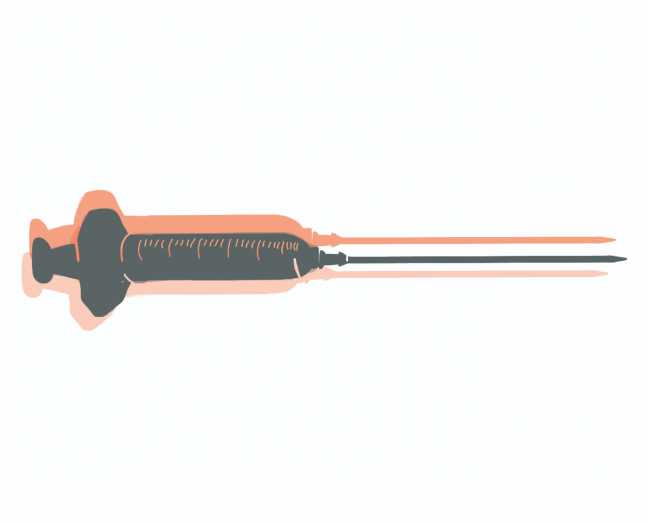University of Wisconsin Health, one of Wisconsin’s largest health systems, canceled thousands of COVID-19 vaccine appointments in the last week of February due to a shortage of doses, exacerbating frustration in many Dane County residents who were experiencing their second cancellation.
White House officials confirmed Feb. 19 extreme winter weather impeded vaccine distribution and created a backlog of around 6 million doses affecting all 50 states. UW School of Pharmacy professor Mary Hayney described UW Health’s cancellations as a nationwide problem caused by the storms, which in turn delayed transportation.
“The vaccine didn’t get here,” Hayney said. “If you look, you’ll see the number of vaccines nationwide went down, and the number of vaccines administered nationwide went down, because of that of the bad weather. Because [the weather] didn’t really affect us, it’s easy for us to forget about it because we’re good at removing snow — it was easy to not realize how that is a big problem.”
The initial plan was to provide all older patients at UW with vaccines by March 1.
Hayney described Dane County’s vaccine distribution rate as around average compared to other counties in Wisconsin.
“Dane County is kind of right in the middle, with about almost 20% of the Dane County residents having received at least one dose of vaccine,” Hayney said. “And that’s pretty good. I mean there’s a lot of counties, right at between you know like between 18% and 22%. In Wisconsin, over half of the people 65 and older have received at least one dose vaccine — around 55.4%.”
Still, many UW Health patients were upset about the vaccine distribution process. More than 4,000 vaccine appointments in Madison were canceled back in February, and almost all were for the 65 and older age group.
Jami Cook spoke to the Milwaukee Journal Sentinel about her 77-year-old mother’s rescheduled appointments.
“I am extremely frustrated to the point I have no faith anymore in UW and the leaders here in Madison getting seniors their vaccine,” Cook said. “The first time it was canceled, it was frustrating — the second time? And now you see they’re going to go ahead and vaccinate other groups? We don’t know what to do anymore.”
The first vaccines in Wisconsin went to health care providers and people in long-term care facilities, and then to anyone 65 and older through March 1. Though eligibility for the vaccine expanded to more groups March 1, UW Health reiterated March 1 the 65 and older age group is still the top priority.
Dr. William Hartman from the UW School of Medicine and Public Health said vaccine distribution decisions are constantly under scrutiny. Educators were included in the original note for March 1 eligibility, but Public Health Madison and Dane County recently stated teachers may have to wait another two weeks due to the supply shortages from the winter storms, indicating the 65 and older age group is still being prioritized.
Madison Teachers Inc., Madison’s teacher union, criticized PHMDC for the statement, saying those who are at a higher risk of exposure should be vaccinated first.
Despite the vaccination setbacks, the recent authorization of the Johnson & Johnson vaccine may accelerate the distribution process. The Wisconsin Department of Health Services announced March 1 the first shipment of the new COVID-19 vaccine would arrive the following week.
Unlike the two-dose Moderna and Pfizer vaccines, the Johnson & Johnson vaccine only requires one dose. Hartman said the one-dose vaccine will speed up the number of people being vaccinated in a large scale manner.
The Johnson & Johnson vaccine yields a 72% efficacy in clinical trials, while the Moderna and Pfizer vaccines are found to have 94 to 95% efficacy. Though, Hartman said the efficacy rates observed cannot really be compared due to the different variants trialed and used in computing the rates.
“I think that the media does tend to paint these vaccines as good vaccine versus bad vaccine,” Hartman said. “I don’t think that that’s necessarily fair. Everyone gets a flu shot, but they don’t always realize that it’s only about 50% effective. With the numbers coming out, the media portrays [one vaccine] as being less effective as another. I worry that people are going to think that one is a less good vaccine which really isn’t the case.”
Q&A with UW immunization expert James Conway on Wisconsin’s COVID-19 vaccination processes
Hartman added ultimately, all the vaccines available are very effective in preventing death from COVID-19, which is the endgame.
The federal government also signed contracts with pharmacies in an attempt to expedite vaccine distribution. Nearly 18,000 vaccines were sent to Walgreens centers around Wisconsin in mid-February.
“Hopefully that contract will expand to include other pharmacies as well, to get vaccines to more Wisconsin residents,” Hayney said.


